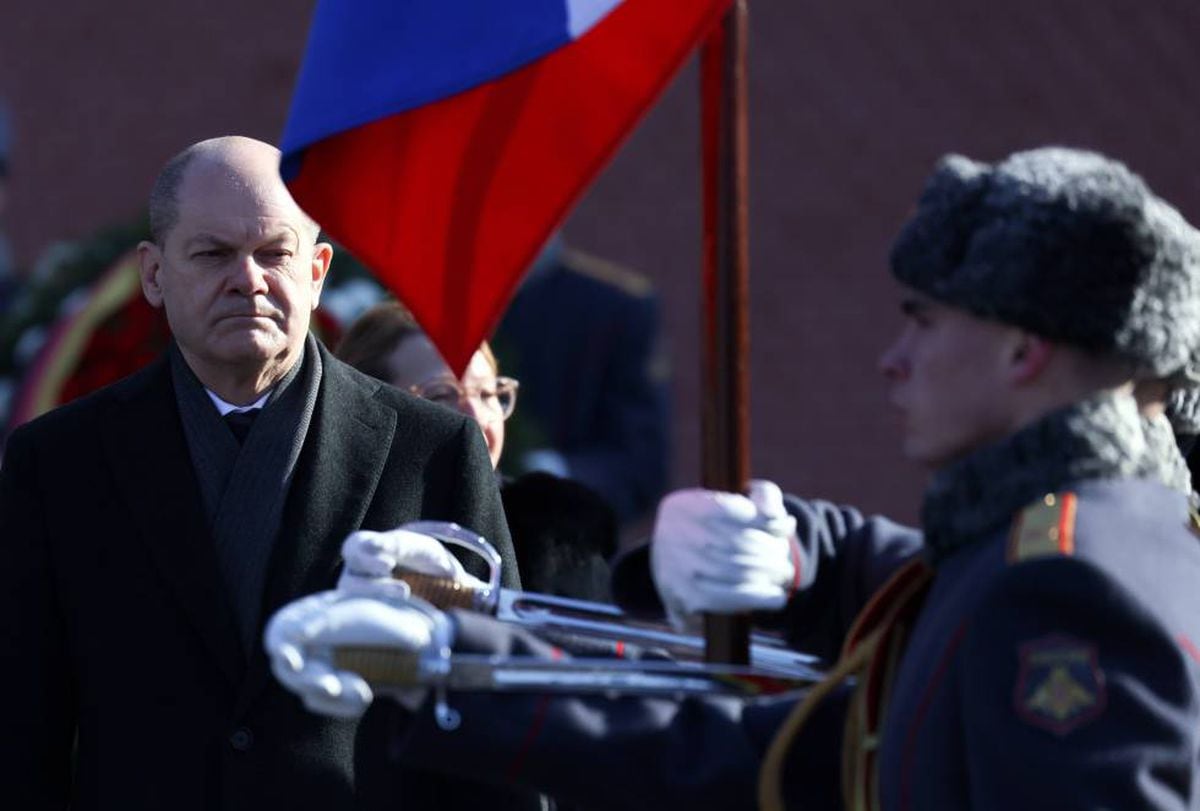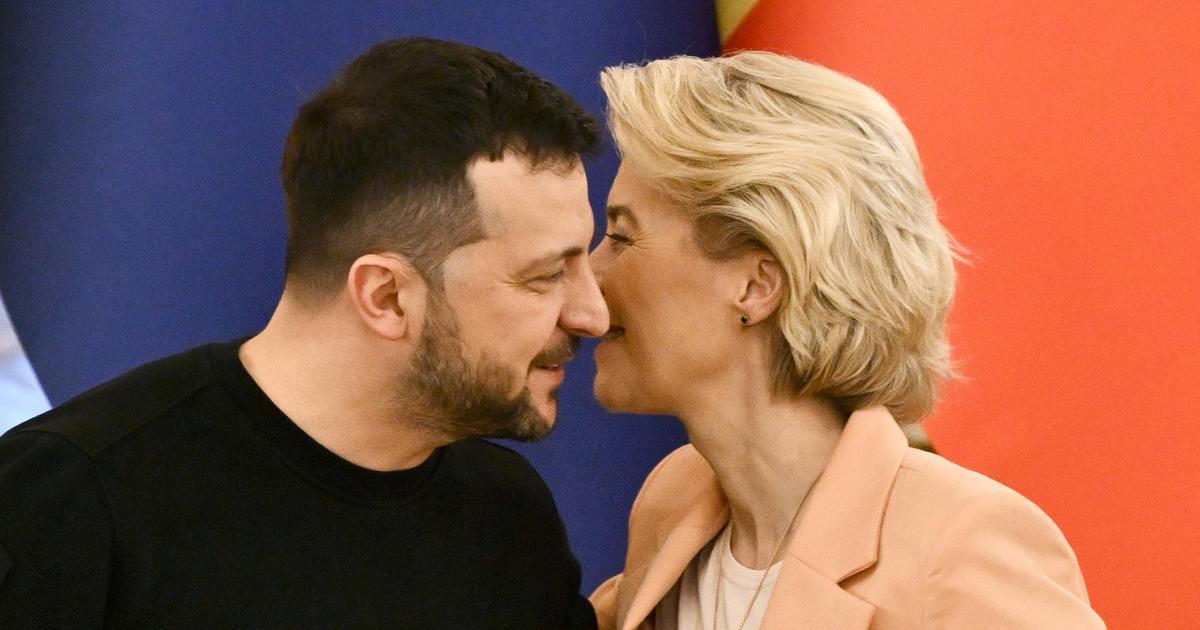Lessons of History: Why Historians Doubt a Russian Invasion
Created: 02/20/2022, 12:06 p.m
By: Sven Hauberg
German soldiers break through the border fence and cross the border into Poland near Sopot on September 1, 1939.
© www.imago-images.de
Will Russia invade Ukraine soon?
A look at history shows that an invasion is currently unlikely, historians believe.
Moscow - It was a bold thesis: US secret services wanted to find out exactly when Vladimir Putin would give the order to invade Ukraine.
The time had come on February 16, according to reports from Washington.
But that day, nothing happened.
US President Joe Biden remains certain that an invasion is only a matter of days.
According to the 79-year-old, the danger is still high.
But is it even likely that the Russian army will invade Ukraine at the very moment when the whole world is watching the trouble spot?
Especially since Ukraine has long been preparing for a possible invasion.
For example, volunteers such as Kiev Mayor Vitali Klitschko train themselves to use weapons in order to be able to ward off a Russian attack.
In addition, countries such as Great Britain and the USA have recently generously supported Ukraine with arms deliveries.
Ukraine crisis: Different approach than in 2014?
The situation was completely different in 2014, when the two eastern Ukrainian oblasts of Luhansk and Donetsk broke away from the rest of the country - even today the region is once again the focus of the conflict.
At that time, Russia was covertly supporting the separatists, as the historian Arnd Bauerkamper from the Free University of Berlin described in an interview with the
editorial network Germany (RND)
.
In contrast, a well-prepared attack, such as the US is expecting today, would leave "time for countermeasures."
"Effective warfare would certainly succeed more quickly if one were to penetrate subversively, as in 2014," says Bauerkamper.
There are many historical examples of the success of surprise tactics, as the
RND
writes.
For example, the German invasion of Poland on September 1, 1939, which the country had not expected.
Several security guarantees preceded the attack by Hitler's Germany, such as a non-aggression agreement of 1934. And even when Hitler withdrew from the pact, Poland still trusted in the support of France and Great Britain.
The Hitler-Stalin Pact concluded in August 1939 made it clear that a German attack on Poland could be imminent;
but this came unexpectedly quickly.
The historian Sönke Neitzel takes a similar view.
One argument against an invasion of Ukraine "that you have to have surprise on your side in the event of a military strike," said the professor of military history and cultural history of violence at the University of Potsdam in the ZDF "heute Journal".
However, when Russia annexed Crimea, the West was "completely surprised".
"And that's not the case now," says Neitzel;
Putin will hardly "step into the spotlight of international publicity" at the moment.
Ukraine crisis: is Putin fleeing forward and attacking?
According to Western estimates, there are now well over 100,000 soldiers on the border with Ukraine.
Historian Bauerkämper believes that this "threatening backdrop" cannot be maintained in the long term.
"Military experts know you can't just leave 130,000 people standing there.
Then demoralization quickly sets in.
At some point the military will say that we must either march or retreat.” However, there is also a danger in this: namely that Putin could “take the flight forward”, i.e. attack Ukraine.
For the historian, however, it is more likely that Putin is only using the threatening backdrop to achieve domestic political successes.
Bauerkämper also sees historical parallels in this regard: "In 38/39 the Germans were also enthusiastic about Hitler's foreign policy successes," says the historian.
"It was only when the threat of war became real that the mood changed." The situation in Russia is similar today.
Ukraine crisis: historian accuses Putin of misunderstanding history
The historian and Eastern Europe expert Martin Schulze Wessel assumes that behind the Russian troop deployment there is not only "power-political calculation" but also a "historical mission".
In an interview with the university, Schulze Wessel, who teaches at Munich's Ludwig Maximilian University, referred to a historical essay that Putin published last year.
In it, Putin drew "the conclusion that the Russians and Ukrainians form a common nation" - for the historian a wrong interpretation of history, but which could lead Putin to annexations.
"Putin may be trapped in a historical understanding that sees a possible war against Ukraine as an internal matter."
Meanwhile, contradictory signals are coming from the Kremlin: On the one hand, the Russian government announced on Tuesday that it intends to withdraw parts of its troops stationed on the border with Ukraine;
on the other hand, the Kremlin is planning a new military maneuver for Saturday, in which ballistic missiles and cruise missiles are to be used.
(sh)














/cloudfront-eu-central-1.images.arcpublishing.com/prisa/EXJQILQR5QI7OMVRTERD7AEZAU.jpg)